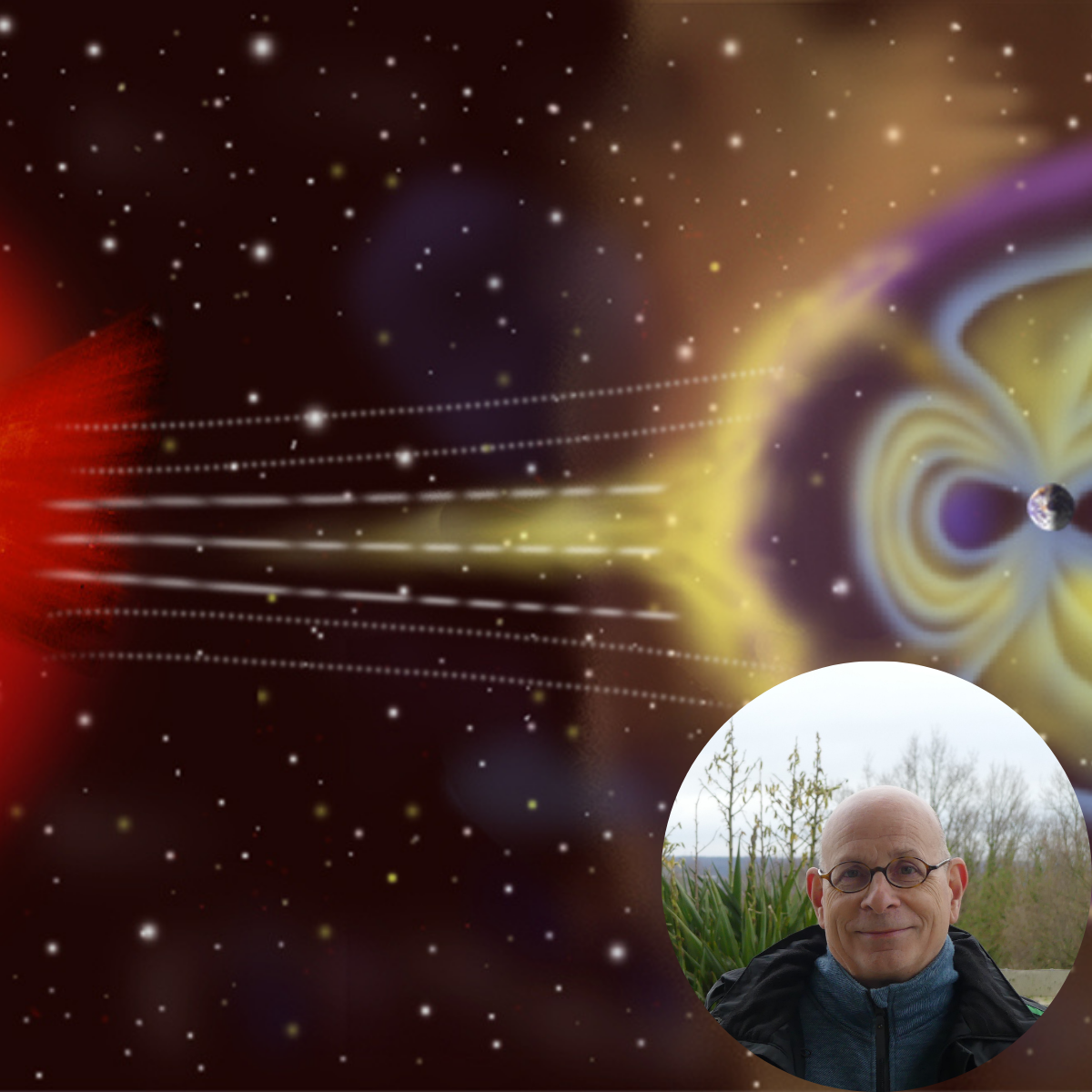
17.11.2025
We are pleased to invite you to the public lecture “Weltraumwetter - was steckt dahinter? " (in German).
Horst Fichtner will answer the question of what ‘space weather’ actually is, whether it has any similarities to weather on Earth, and whether it can even pose a danger to us in extreme cases.
When 26.11.25 at 20:00
Where Planetarium Bochum
For registration and further information, please have a look at the Planetarium’s homepage.
Picture:
The solar wind interacting with the magnetic field of the Earth.
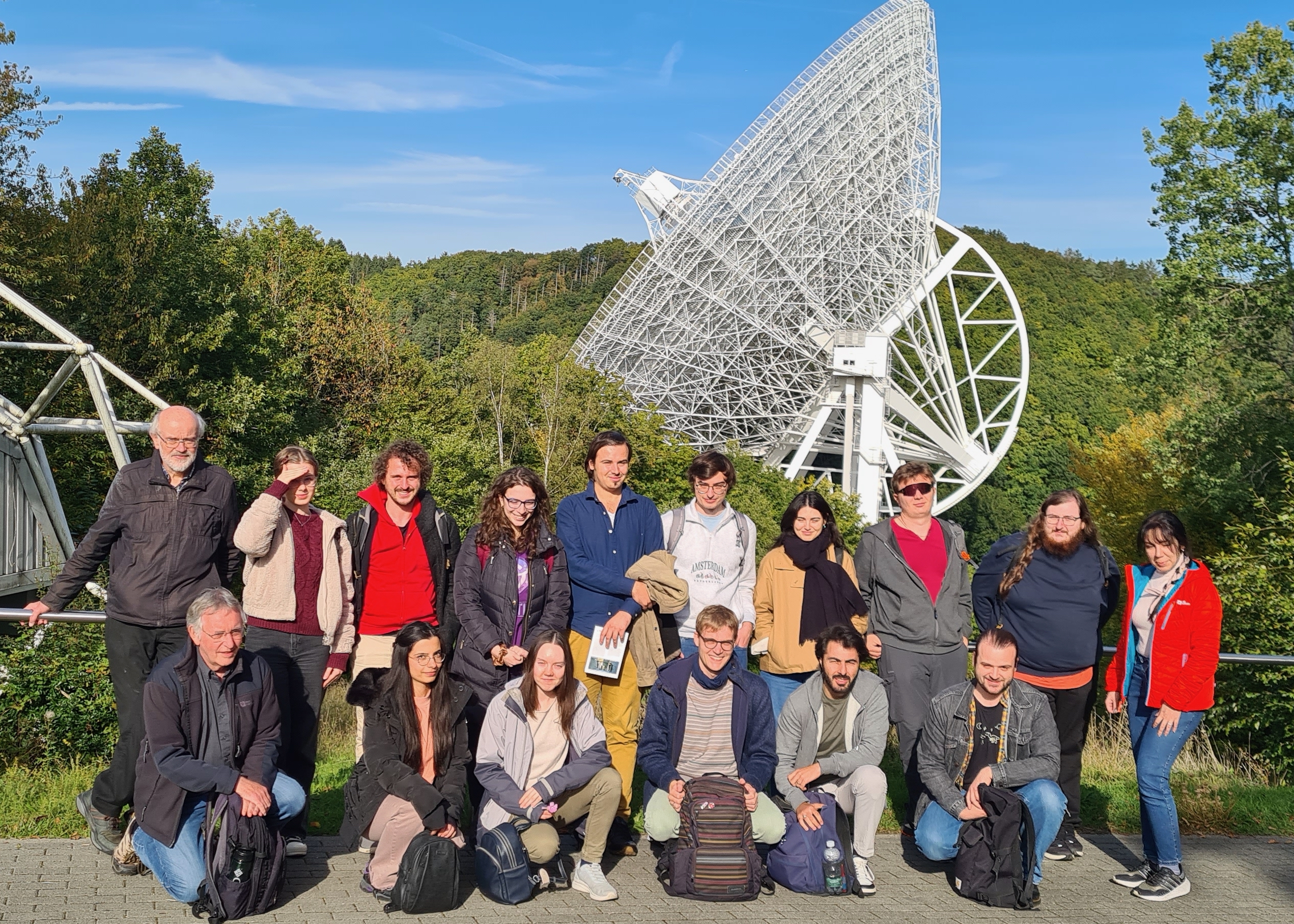
02.11.2025
On October 2nd, a group of ECRs from our CRC embarked on an inspiring visit to the Effelsberg Radio Telescope which is one of the world’s largest fully steerable radio telescopes. Operated by the Max Planck Institute for Radio Astronomy (MPIfR), the 100-meter telescope has been a cornerstone of astronomical discovery since the 1970s. Thanks to continuous modernization, it remains a leading observatory in radio astronomy until today.
During the visit, Dr. Norbert Junkes from the MPIfR guided the group through the impressive facility. Our participants gained fascinating insights into how the telescope operates, its various research capabilities, and its ongoing contribution to exploring the Universe.
This visit not only deepened the ECRs' understanding of radio astronomy but also sparked new ideas and enthusiasm for their own research paths.
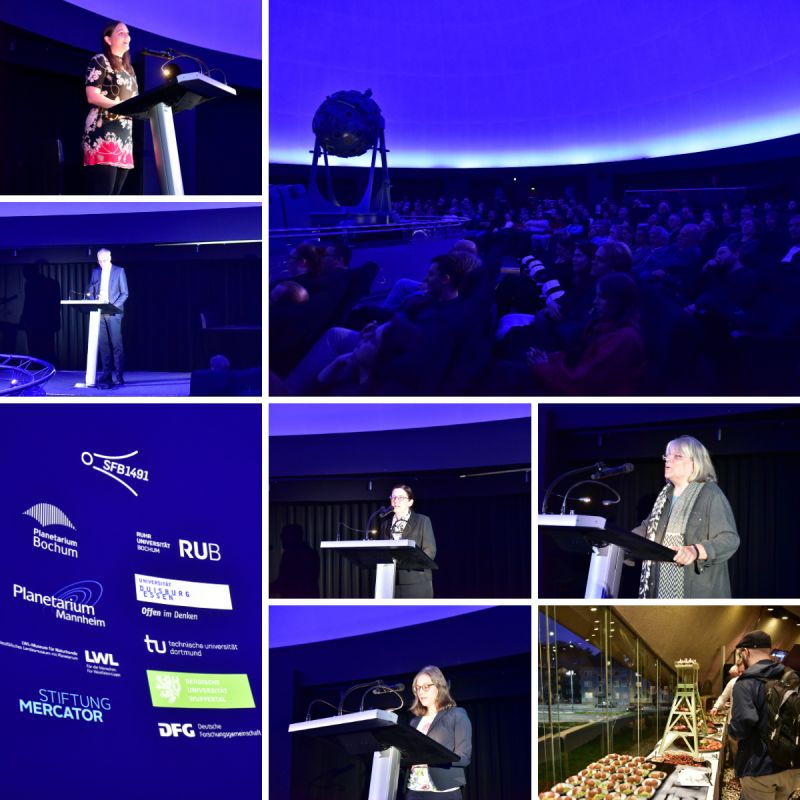
20.10.2025
We were delighted to celebrate the 10th anniversary of the RAPP Center with some special events!
The celebrations began with a festive ceremony attended by representatives from all participating universities, including Prof. Albert
(Rector of the University of Duisburg-Essen), Prof von Keudell (Prorector of Ruhr University Bochum), and Prof. McElvany (Prorector of TU Dortmund ) .
A true highlight of the evening was the premiere of our planetarium show „Unser exotisches Universum“ (“Our Exotic Universe”), which captivated the audience with fascinating insights into the science of our CRC.
The evening concluded with a reception and refreshments, providing a wonderful opportunity for conversation and connection.
The celebrations continued with a scientific conference featuring international invited speakers, held in the unique atmosphere of the German Mining Museum „Deutsches Bergbaumuseum“.
Over two days, participants engaged in stimulating discussions covering the wide range of topics represented within the RAPP Center. The event fostered lively scientific exchange and helped to strengthen the sense of community within our research network.
We are proud of what the RAPP Center has achieved over the past decade and look forward to many more years of exciting collaboration and discovery!
Picture: Some impressions from our premiere celebration.
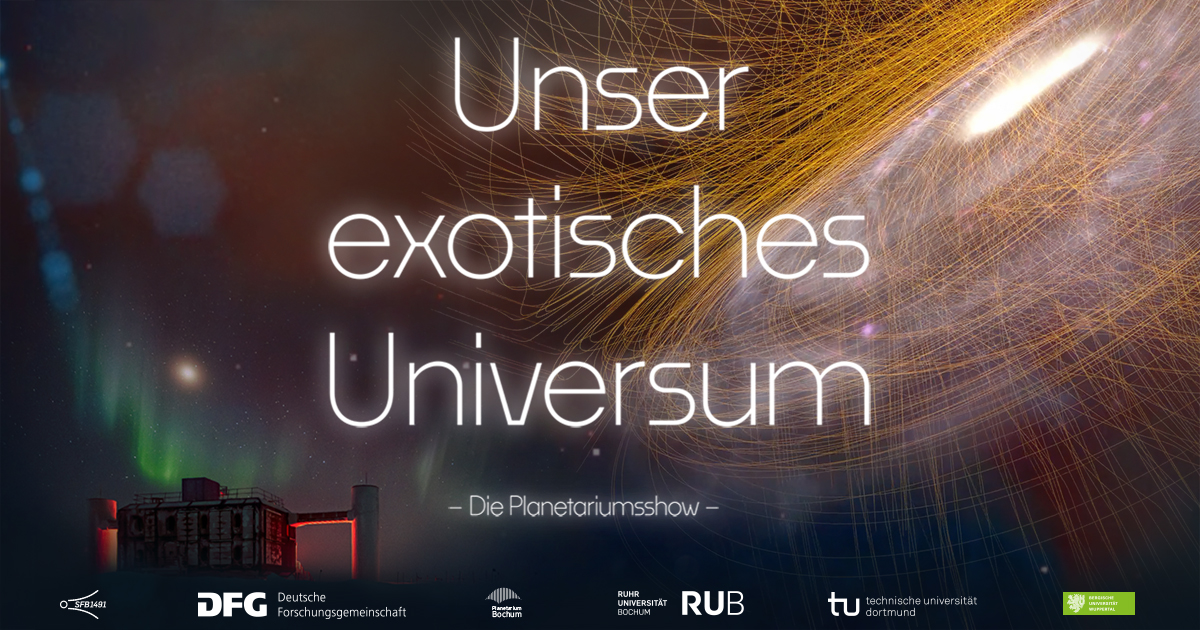
07.10.2025
We are pleased to announce that the SFB1491 planetarium show Unser exotisches Universum will premiere on October 8, 2025, as part of the 10th anniversary ceremony of the RAPP Center.
The production offers audiences a unique glimpse into the wide-ranging research conducted within our CRC:
Combining cutting-edge scientific insights with visually stunning projections, the show takes viewers on a journey through the exciting world of modern physics and astrophysics — from experiments at the Large Hadron Collider (LHC) and cosmic rays in the Milky Way and other galaxies to stellar explosions and active galactic nuclei (AGNs).
Please note that the show is currently available in German only. An English version is in preparation.
Beginning October 12, the show will be presented regularly at the Planetarium Bochum and at other venues, including the LWL-Museum für Naturkunde mit Planetarium and Planetarium Mannheim .
Further information on the detailed schedule at the Planetarium Bochum can be found here.
Please also have a look at the RUB's News article on our show here.
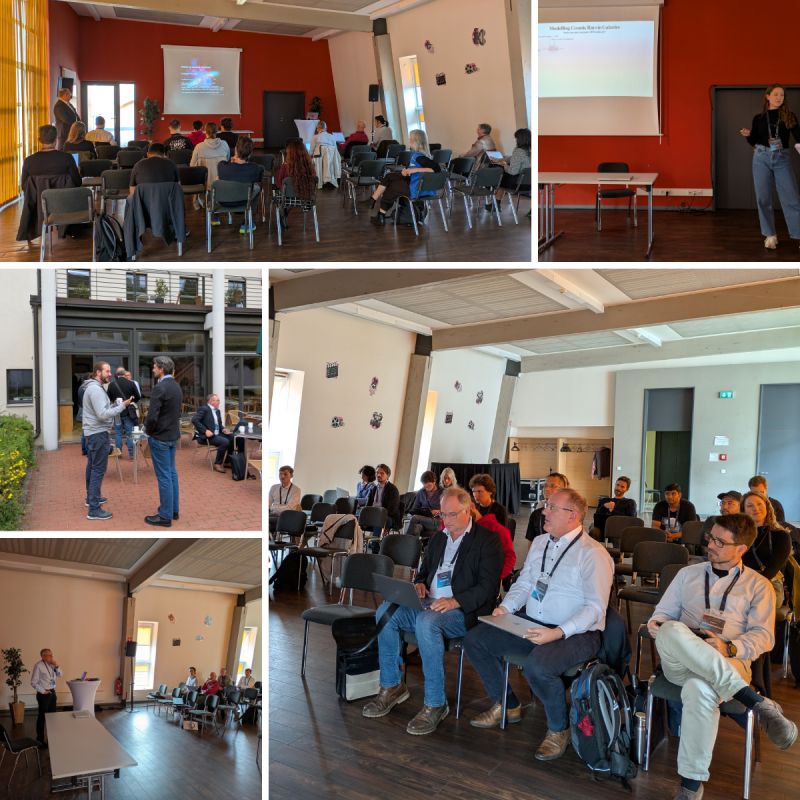
30.09.2025
Our CRC contributed to the 2025 Annual Meeting of the German Astronomical Society (Astronomische Gesellschaft) with the dedicated Splinter Session “Multi-messenger Signatures of Feedback Processes in Galaxies”, organized by Dominik Bomans and Dominik Elsässer.
This session brought together experts to discuss recent advances in understanding feedback mechanisms in galaxies through multi-messenger and multi-wavelength observations. The presentations and discussions explored how active galactic nuclei, massive stars, cosmic rays, and magnetic fields shape the interstellar medium, drive turbulence, and influence cosmic ray transport.
The full program can be found here.